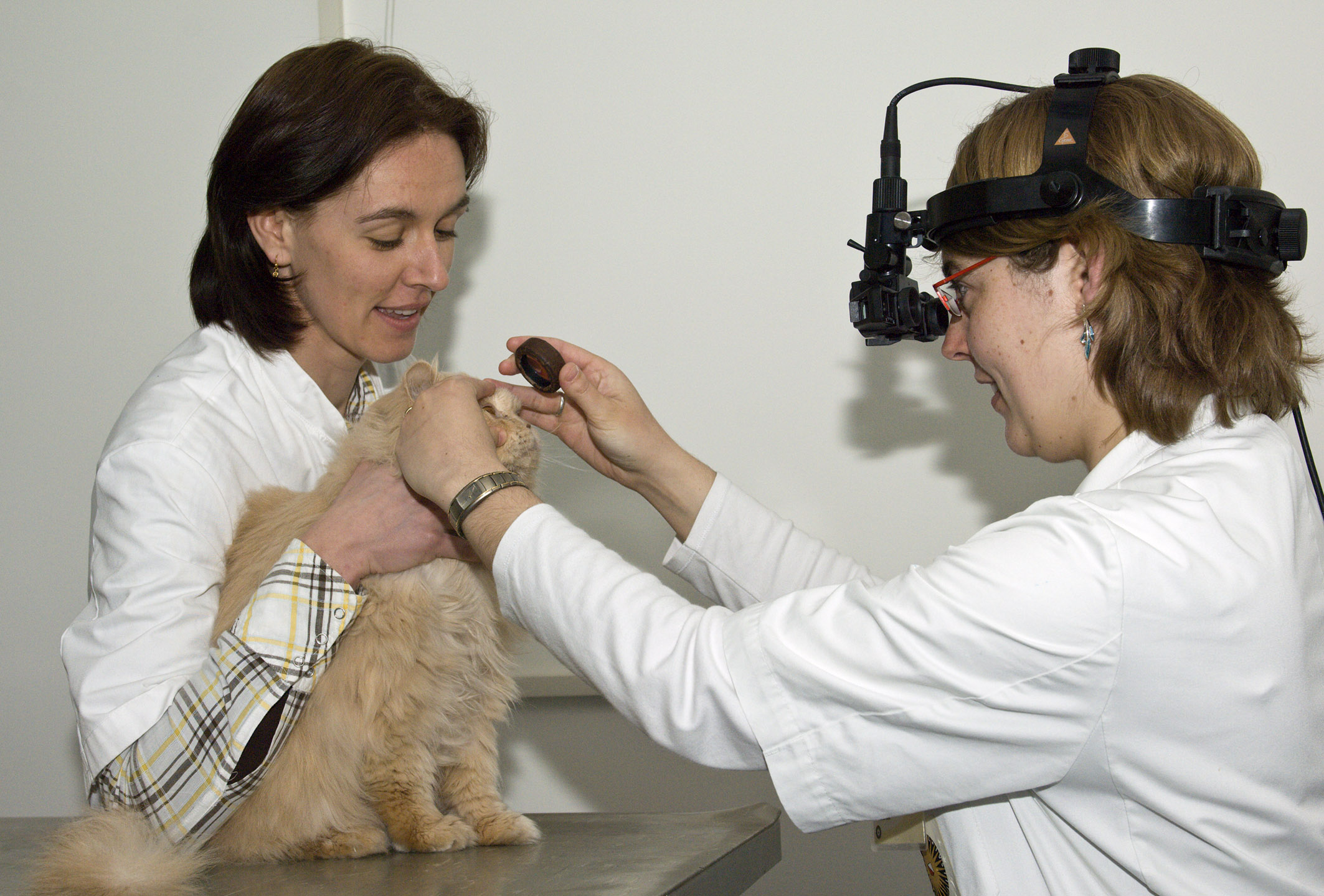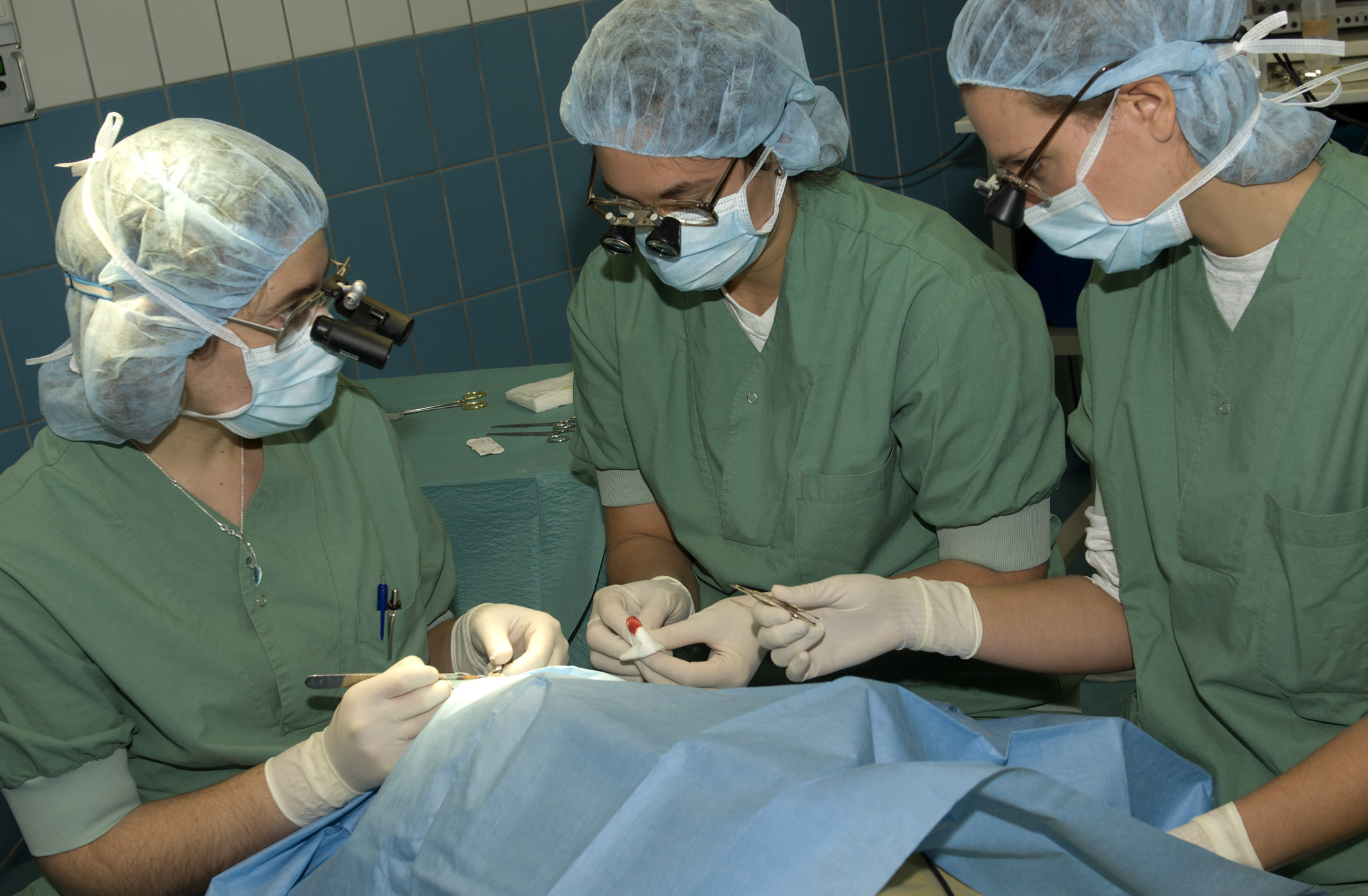Some residents have known for a long time they want to specialize in ophthalmology and others find their vocation while working in general practice or during an internship programme. Being qualified veterinarians with some years of experience residents find themselves in a special position.
“As a resident you find you still have a lot to learn while at the same time you are able to share your knowledge and experience with interns and students, who offer a daily challenge and help you keep focused during your training. It is nice to see students develop an interest in ophthalmology as well as progress in their practical skills and diagnostic abilities with your support.”
Residents come into contact with a wide variety of species during their residency. This is a great challenge as they are required to learn about interspecies differences in anatomy, physiology and disease processes of mammalian, reptilian, avian and other species including animals of aquatic environments. Literature is reviewed and discussed with the residency supervisor and senior residents regularly during a residency programme. In addition, residents have to do a lot of studying on their own in preparation for the ECVO exams, their research projects and presentations. Presentations are given in international congresses during which residents from different countries and institutions meet to exchange experiences.
Residency supervisors transmit to their residents the knowledge they have acquired in the application of a wide variety of medical and surgical treatments. Treatments they are most comfortable and experienced with.
“As a resident you have to learn as much as you can from the experience offered by your supervisor, as this is a unique opportunity. In the end you will have gained an enormous amount of knowledge and skills... just expect to still come across plenty of patients that will pose quite a diagnostic challenge!”
 |
| Figure 1: Petra Grinninger DipECVO (L) , (Junior ECVO resident in 2010 at the time of writing) and Ingrid Kraijer–Huver (R) DipECVO (senior ECVO resident also in 2010) during indirect ophthalmoscopy in clinics. |
 |
| Figure 2: Ingrid Kraijer–Huver (R) DipECVO (Senior ECVO Resident at the time of writing in 2010) teaching final year veterinary students during eyelid surgery. |
Once all the steps in the training program and credentials process have been successfully completed, the candidate is eligible to sit a rigorous qualifying examination. This arduous set of written and practical exams is offered by the ECVO once a year, and is organised by a committee composed of experienced ECVO Diplomates from different countries, who have extensive experience in developing undergraduate and post graduate examinations.